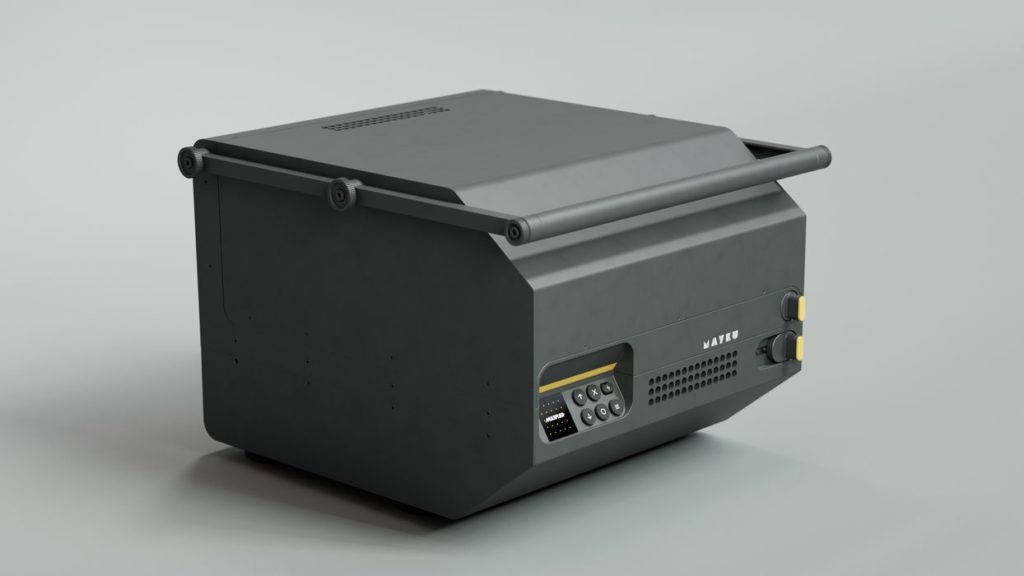
Mayku today announced a new device, the Multiplier.
The company launched a few years ago with the introduction of the Formbox, a desktop vacuum former. However, the new Multiplier is a lot more powerful.
Vacuum Forming
It’s not a 3D printer, but instead is a “pressure former”. This is similar to a vacuum former, except that pressure is used instead of vacuum. The idea is to heat a sheet of thermoplastic until it is soft, and then pull it around a mold. This instantly forms a shape made from the sheet.
The process can be used to rapidly produce thin 3D items, like masks, curved plates and similar objects.
The pressure forming process is quite accurate, much more so than standard vacuum forming. Mayku said the Multiplier is able to “pick up lines and grooves 3 microns thick”. This should enable production of highly detailed sheets, which can be up to 400 x 400 mm in area.
The Mayku Multiplier
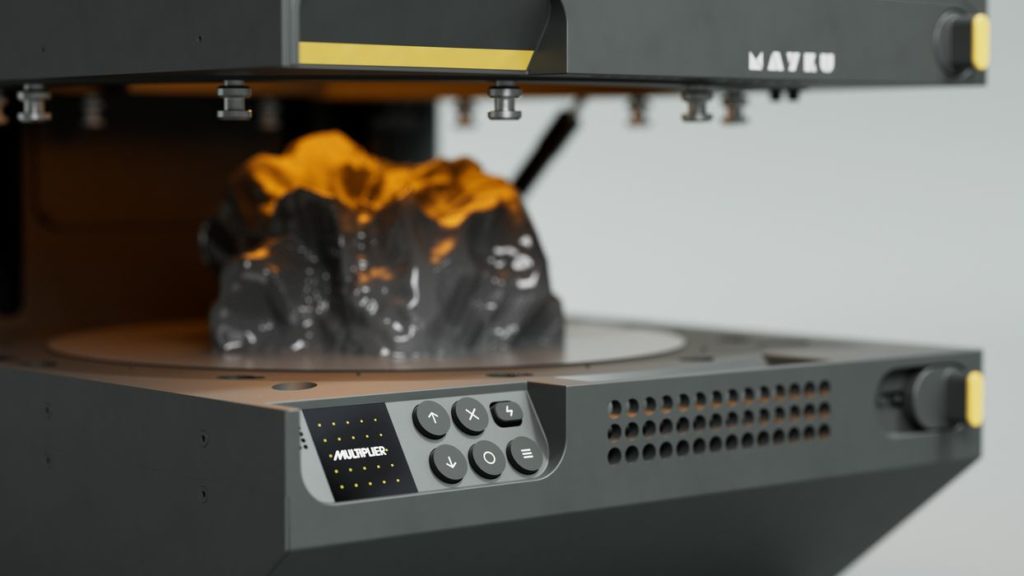
Mayku said the Multiplier works with several types of flat sheets, including resins, flexibles, clear and more. The Multiplier also includes a WiFi capability to enable networked connections.
You might be wondering why I’m writing about a 2D manufacturing device, a pressure former, on a 3D print news site. 2D is definitely not 3D. But it turns out the two technologies actually can have a very tight relationship.
Mayku’s Co-Founder & CPO Ben Redford said:
“The Multiplier is capable of replicating 3D prints and other shapes rapidly, bringing manufacturing in-house. With its absolute precision, the Multiplier rivals silicone or injection molding by being able to produce forms which capture lines and grooves up to 0.0004mm thick, picking up the thickness of ink on paper. Having access to factory level products, on the desktop, opens up a world of possibilities for end users as they can start to scale their business at low-cost with better quality materials.”
3D Printing and Pressure Forming
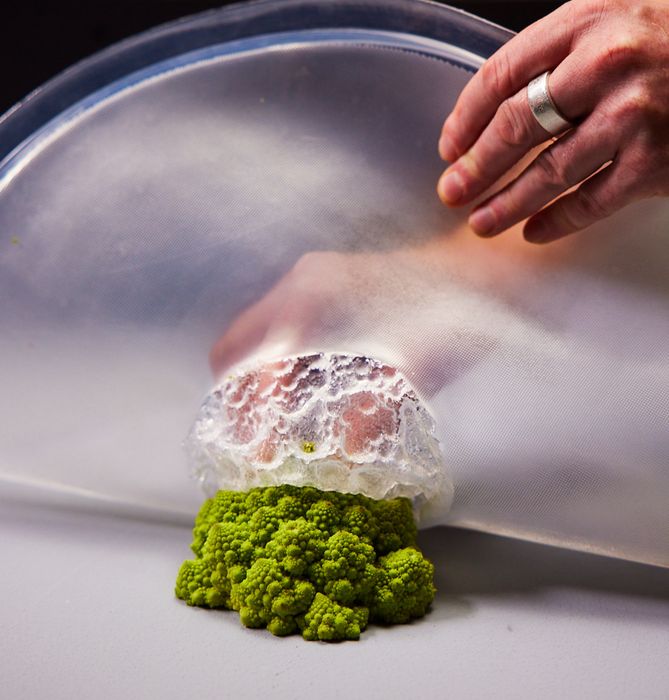
This is the secret: the Multiplier can use a 3D printed object as the mold and cast a 2D sheet overtop. This creates a negative mold of the original 3D print, which can then be used to cast new copies.
Casting is enormously faster than 3D printing, depending on the material used. This means a production facility could produce — through casting — many, many copies of a 3D object far faster than 3D printing them. The pressure forming process should ensure the quality of the casts are exceptional.
This is why the machine is called the “Multiplier”.
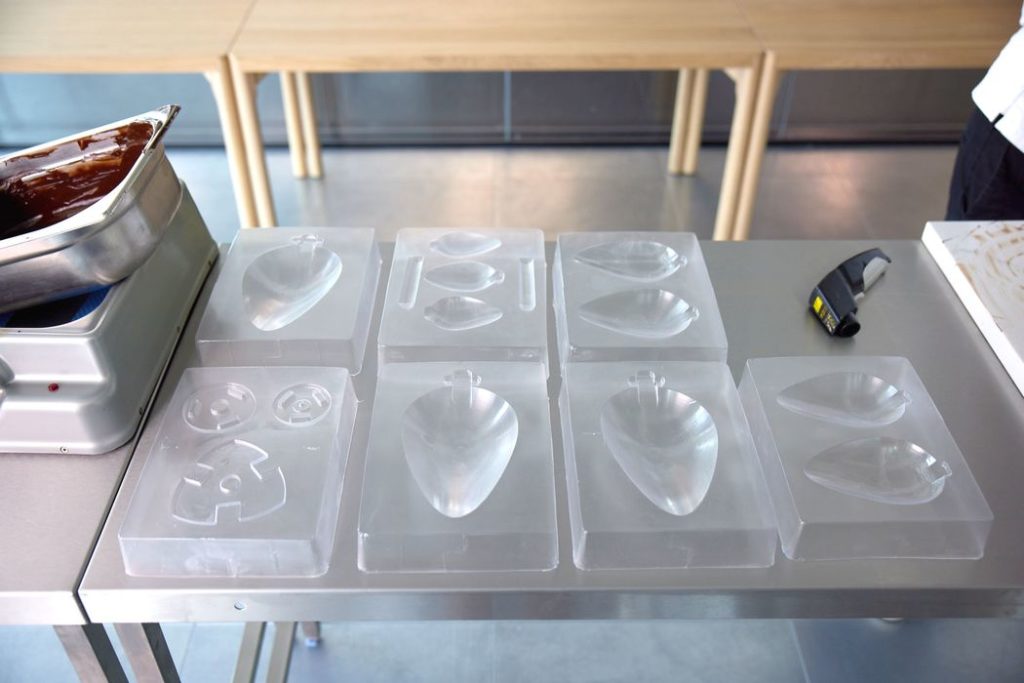
Here’s an example of how this could be used. A chocolatier might design a new product, and 3D print a thermoplastic version of it. This is then placed in the Multiplier to produce a negative mold using a clear casting sheet.
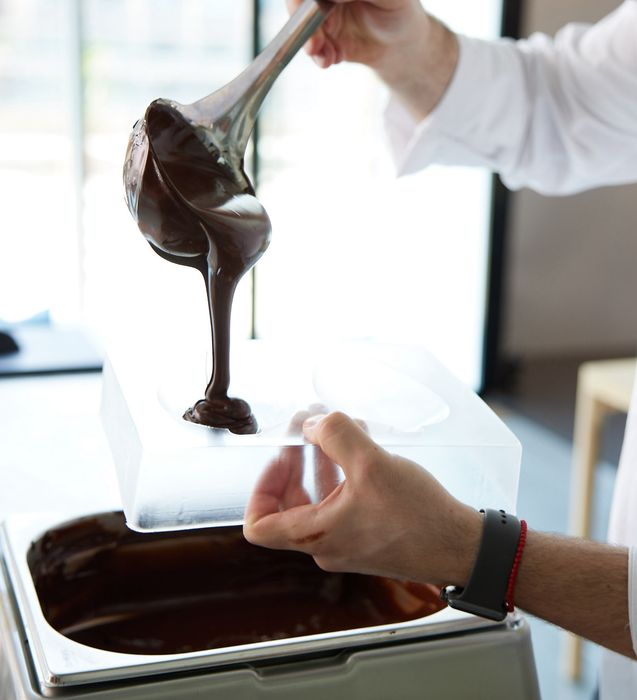
The chocolatier can then pour liquid chocolate into the new mold and quickly make the new product. By breaking down the product into several pieces, it’s possible to cast more complex objects — but they will require assembly afterwards.
Any castable material could be used. Beyond chocolate, a manufacturer could use concrete, polymer resins, eggs, or anything that transforms from liquid to solid form.
There is one very interesting approach that could be used here: 3D printed production. Imagine receiving a request for a larger number of parts that would take a 3D printer too long to produce. Instead, a mold could be created with the Multiplier and polymer copies of the desired part could be rapidly cast. In other words, the device is almost like a set of extra 3D printers on hand for quick demand.
Mayku Multiplier Constraints
However, there is a catch. Like all casting processes, there are geometric restrictions. Geometries must be such that the cast can be pulled from the mold without destroying the mold. This means surfaces must have slight draft angles and eliminating overhangs.
While that may seem quite restrictive to 3D printer operators, it’s important to remember there are ways around this issue. A part could be broken down into several pieces that are each castable, for example.
Mayku Multiplier Price and Availability
Could the Mayku Multiplier be a necessary accessory for a small 3D print workshop? I think it could be a very welcome device, particularly when you consider its price: US$1,999. This is spectacularly lower than commercial pressure formers, which apparently cost in the US$150K range.
Mayku is offering pre-orders at this price on their website for a time, but the price is set to rise in the future.
Via Mayku
